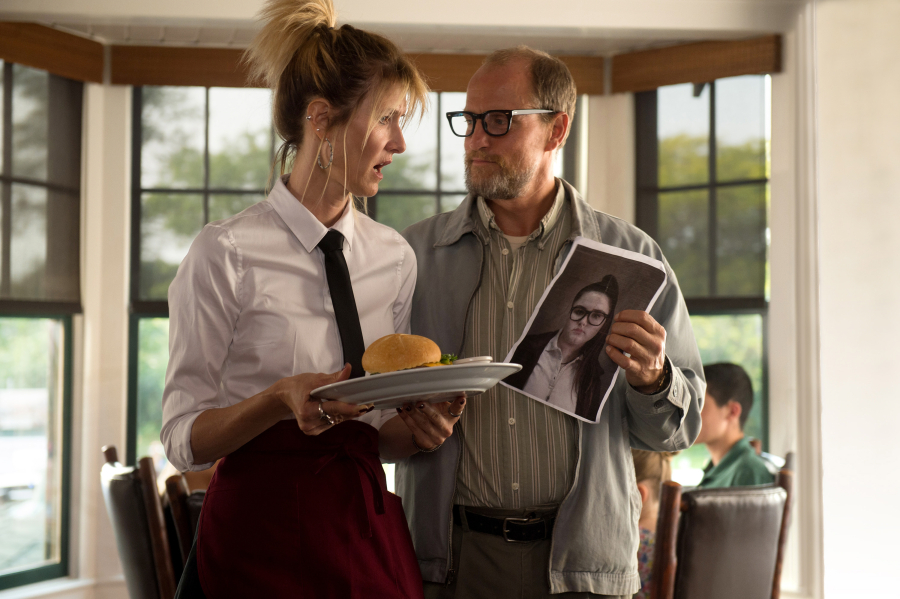‘I believe that every one of us has a story to tell.”
So begins the dry, voice-over narration of the film “Wilson,” courtesy of Woody Harrelson in the title role. Wilson, a middle-aged misanthrope, is based on a character created by Daniel Clowes in his graphic novel of the same name. Clowes — whose “Ghost World” and “Art School Confidential” have previously been made into films — adapted his 2010 book for this screen version, directed by Craig Johnson of “The Skeleton Twins.”
Wilson may be correct — that we all have something to get off our chests — but the evidence presented by this sour-to-the-point-of-toxic bellyacher suggests that not all of our ravings are equally worth telling, or hearing. Wilson’s insistent anti-charisma kills whatever inherent charm his story possesses, in its narrative of a jerk attempting to bond with the daughter he never knew he had.
Over the course of the film, Wilson — who has no visible means of support but mocks people for their jobs — learns that his ex-wife (Laura Dern) did not have an abortion after she left him several years ago, as he believed. “Wilson” is the kind of film that expects a laugh when we learn that his ex is named Pippi — as in Longstocking — and that she now sports a tattoo on her lower back reading “Property of Sir D.A.D.D.Y. Big D—.” Wilson, at another point, creeps out some dude standing next to him at a urinal by complimenting the stranger on his, er, equipment.
Again, that’s meant to be funny.
The movie centers on Wilson’s attempt to establish some kind of rapport with his now-teenage daughter (Isabella Amara), who was given up for adoption, although the film gives us no reason to believe that he has ever successfully connected with a human being before. What may have worked on the pages of a book-length cartoon comes across as merely cartoonish when enacted by live actors.
Steve Buscemi’s similarly misfit Seymour in “Ghost World” managed to evoke a dyspeptic pity from the audience that Wilson, alas, cannot, despite the film’s strenuous efforts to humanize him.



